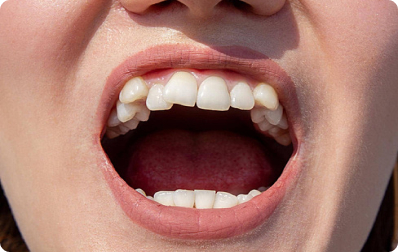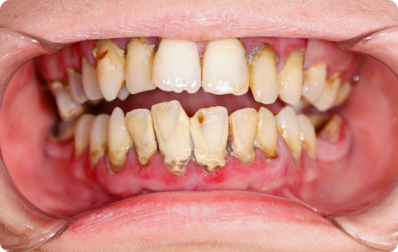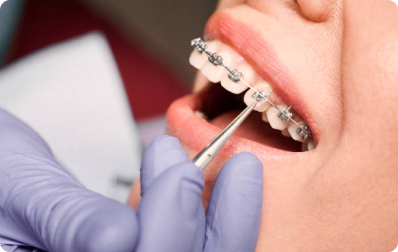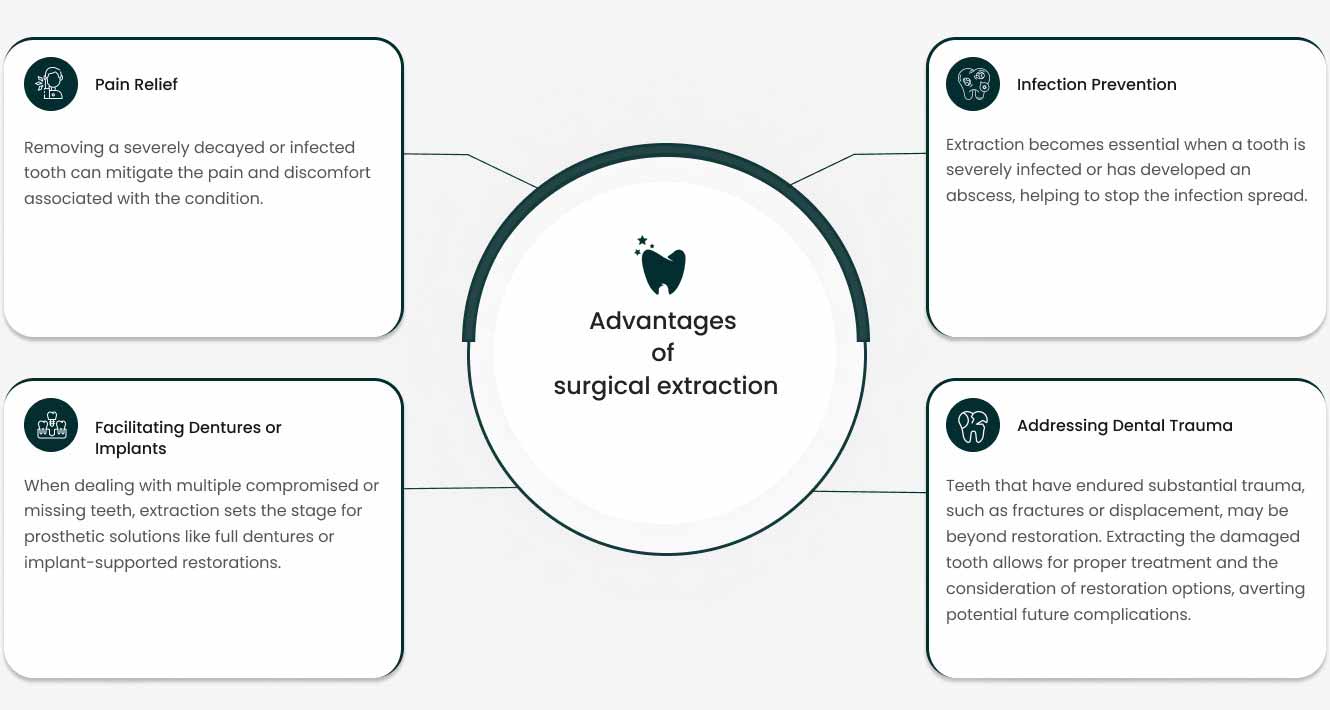
What is surgical extraction?
A surgical extraction is a dental procedure that involves the removal of a tooth that cannot be easily extracted using simple, non-invasive techniques. It is performed by an oral surgeon or a dentist with advanced training in oral surgery. Surgical extractions are necessary for various reasons, including when a tooth is impacted, severely damaged, or when it has complex root structures.
Signs that indicate the need for a surgical extraction

Impacted Wisdom Teeth :
Wisdom teeth do not have enough space to emerge properly and become impacted. Surgical extraction is necessary to remove these impacted wisdom teeth, which are located at the back of the mouth.

Broken or Fractured Teeth :
Teeth that are severely broken, fractured, or damaged may require surgical extraction when they cannot be saved with restorative procedures like fillings or crowns.

Teeth with Curved or Multiple Roots :
Some teeth have complex root structures or are curved, making them challenging to extract through simple, non-surgical means. Surgical extraction may be needed to ensure the complete removal of the tooth.

Infected Teeth :
In cases of severe dental infection or abscess, a surgical extraction may be necessary to prevent the spread of infection to the mouth or body.

Orthodontic Treatment :
Some orthodontic treatments, like braces, might require the removal of one or more teeth to create space for proper alignment. These extractions are often performed surgically.



Pain Relief
Removing a severely decayed or infected tooth can mitigate the pain and discomfort associated with the condition.

Infection Prevention
Extraction becomes essential when a tooth is severely infected or has developed an abscess, helping to stop the infection spread.

Facilitating Dentures or Implants
When dealing with multiple compromised or missing teeth, extraction sets the stage for prosthetic solutions like full dentures or implant-supported restorations.

Addressing Dental Trauma
Teeth that have endured substantial trauma, such as fractures or displacement, may be beyond restoration. Extracting the damaged tooth allows for proper treatment and the consideration of restoration options, averting potential future complications.
